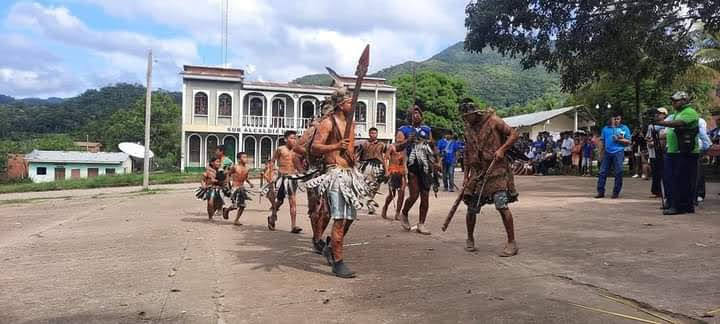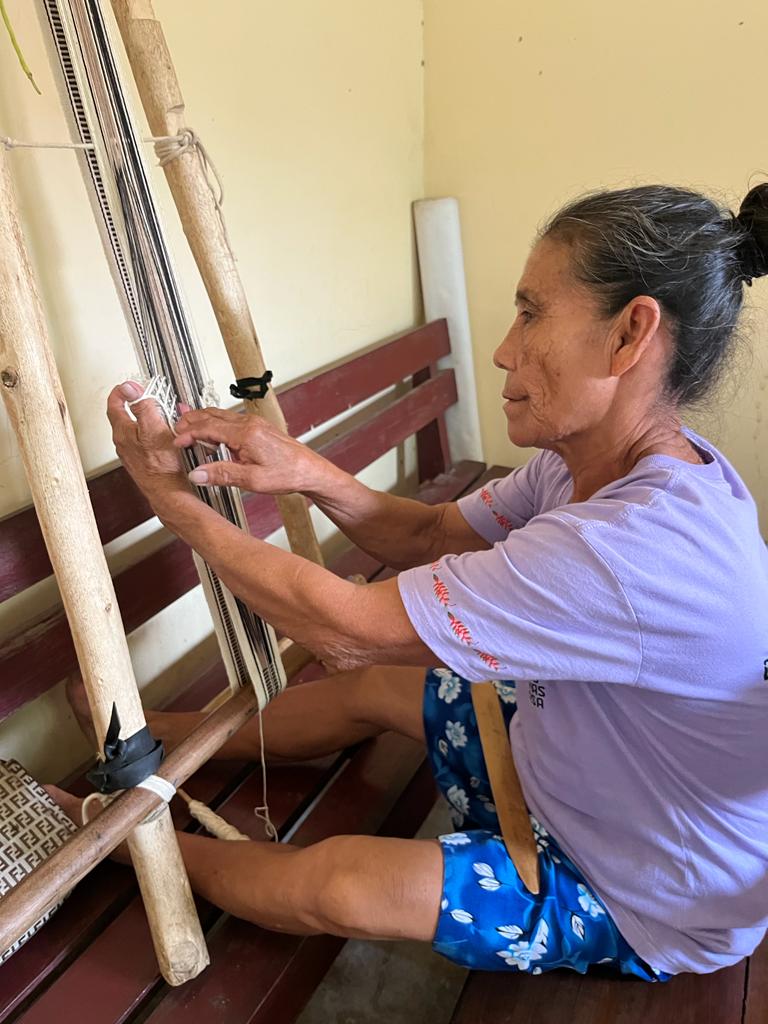
In june of 2024, the team at Wikimedistas de Bolivia embarked on an adventure that sought to support the release of information from the Tacana indigenous people into Wikimedia projects.
To this end, we visited the town of Tumupasa, in Bolivia’s Amazonian region, northern region of the department of La Paz. This location is considered by its inhabitants to be “the birthplace of Tacana culture” due to the fact that the vast majority of them identify as members of the Tacana people. Tumupasa is also important for being the entry point to the Madidi Natural Park, a protected area with one of the highest biodiversity ranges in the world.
During two months of arduous exploration and cooperative work with the Consejo Indígena del Pueblo Tacana – CIPTA (Indigenous Council of the Tacana People, or CIPTA) and the Consejo Indígena de Mujeres Tacanas – CIMTA (Indigenous Council of Tacana Women, or CIMTA), we worked jointly to highlight the most important issues that the community wanted to share information about. This effort finally produced results on the second week of August, when a group of members gathered to update and publish new content regarding the Tacanas.
Next, we’ll share the most relevant aspects of these efforts and, in particular, the learnings we made along the way.
Initial approach: coordination meetings
In our initial coordination meetings , both CIPTA and CIMTA identified indigenous territorial and cultural protection as the most important issues to be shared about them on Wikipedia. They also desired to share information about these issues from the experience and common knowledge of the Tacanas without intermediation – something that seldom happens when it comes to sharing information about indigenous peoples.

This initial working approach was developed with local organizations, which allowed CIPTA and CIMTA to pinpoint some specific topics – among others, festivities, rituals, local species of flora and fauna, water sources, and threats to their land and territory – as potential topics that they could contribute on-Wiki.
This approach also allowed for the opening of the library that’s under management of the indigenous organizations. This archive contains material authored by the Tacanas, which in turn contains both the memory of their elders, as well as modern perspectives. Thus, this knowledge was freed and shared on Wiki projects. This is knowledge that made it to the encyclopedia directly, without intermediaries that are often foreign to them. In that sense, these stories were told by their own protagonists.
At this stage, the indigenous organizations also gathered the people of town publicly, so that they may participate in the process of releasing information.
Second stage: releasing information
Editing workshops were carried out on August 28th through 30th, with the goal of improving and enriching the content that was already present on Wikipedia, with information that’s relevant to the Tacanas. These improved articles included the article on the Tacana people itself, as well as the article for the town of Tumupasa, which at the time were only stubs or had too few sources.
The spaces for dialogue with members of the indigenous organization that were established allowed our team to transmit the idea of how important it is to give access to information that’s generated by indigenous peoples themselves on Wiki projects, and turn these projects into resources that may help them in the defense of their collective, human, environmental and territorial rights.
The reflections that the community produced signaled the fact that the Internet isn’t enough to contain the riches of their region, their culture, and the work that’s being done in defense of their rights.
“This effort helps the Tacanas by making the information about us to be available and easily found on the largest open encyclopedia in the world. It’s also developed the skills that the Tacanas need to be able to upload their own knowledge (to Wiki)”, explains Adalid.
Third stage: evaluation and assessment by Wikimedistas de Bolivia

We consider that the greatest lesson we learned was how to get a project started, and obtain results that represent resistance to uniformizing discourses on the Internet. This was achieved with the help of CIPTA and CIMTA along with the community, who created quality content about their own selves, as well as the place they live in.
In other words, the information that was added to Wikimedia was originated locally, which is why it’s so valuable!
What was achieved in wiki-sensitive terms?

Before the workshops, the presence of the Tacanas and the Tumupasa region was limited to about ten images on Wikimedia Commons, and some of them were images from a hundred-year-old archive. Through our efforts, the amount of images increased to 60, with pictures showing a variety of content: artisanal artifacts, Tacana dances, landsites in Tumupasa, local forests and pictures from the 2023 fires.
Participants added ecological information when editing Wikipedia articles, especially because of the strategic location of Tumupasa in relation to Área de Manejo Natural Madidi (Madidi Natural Management Area). Consequently, besides the improvement of the sources on the article for Tumupasa (https://es.wikipedia.org/wiki/Tumupasa) a subtitle decribing the 2023 forest fires that affected the region and that were largely disregarded by mainstream media was added.
Another article that improved by participants is the article about the Tacanas themselves (https://es.wikipedia.org/wiki/Pueblo_tacana). This advancement included the addition of new sources and subtitles describing the issues that affect them in the present. This effort strengthens the trustability of the information, and it also enhances the academic value of the content.
What’s next?
This was only a first approach to the Tacana indigenous people, through CIPTA and CIMTA. We’ve kept in contact with other stakeholders in the region. Through learning processes we’ll continue to invite volunteers from indigenous peoples to join in to build Bolivian content, and have it be told from a local perspective and with locally-generated knowledge.

Can you help us translate this article?
In order for this article to reach as many people as possible we would like your help. Can you translate this article to get the message out?
Start translation